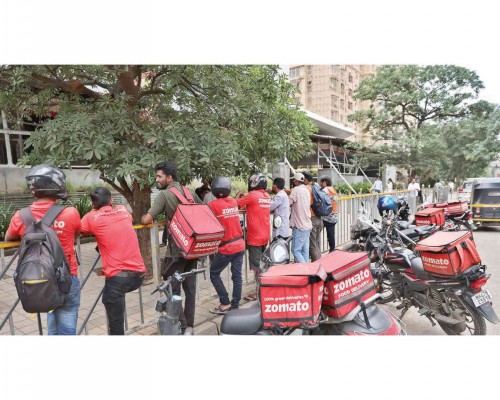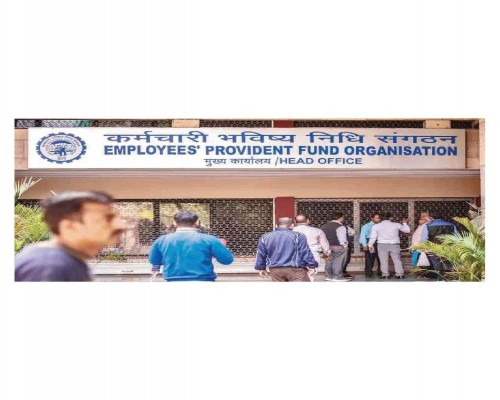INTRODUCTION OF LABOUR LAWS NEED OF STATUTE - LABOUR LAWS :

Mr.YOGESH KUMAR GUPTA
First world war was fought during 1914 to 1919. Indian forces from british side took part in the war. The repair & maintenance of war planes, ships, vehicles etc were found necessary to be carried in india. Most of such work was entrusted to tatas who engaged various work force. The work force started to pour in even from out-side. The indian workers came to know that good compensation was awarded to the disabled workers and family of the deceased workers. Thus, WORKMEN’S COMPENSATION ACT, 1923 came into force.
The workmen started gathering and the then government felt that union activities should be controlled through some legislation and thus TRADE UNIONS ACT, 1926 was enacted.
Thereafter, PAYMENT OF WAGES ACT, 1936 came into operation. Which initially was made applicable on the employees getting salary upto rs. 200 /- per month, however, the ceiling was further revised in due course which is now rs. 18,000 /- pm at present. The payment of wages act 1936 regulates the payment of wages to certain classes of persons employed in industry. It was enacted to ensure that the wages payable to employees covered by the act should be disbursed by the employers within the prescribed time limit and that no deduction other than those authorised by the law, are made by the employer.
--- 2 /-
:: 2 ::
THE INDUSTRIAL EMPLOYMENT ( STANDING ORDERS ) ACT, 1946 was enacted in order to define the uniform terms and condition of services of all the workmen. Under this act the model standing orders come into effect unti l the draft standing orders are got certified from the certifying officer of the area concerned. It must be kept in mind that the model / certified standing orders prevail over the terms and condition mutually agreed upon between the parties to the extent that those condition are inconsistent with model / certified standing orders. The standing orders also empower the management with the right to lay-off, suspend, hold domestic enquiry in the prescribed manner, disciplinary action etc.
It was also felt necessary that in case if there is any dispute regarding implementation of terms and condition of service, the same must be resolved first amicably, otherwise by way of adjudication by Labour courts / industrial tribunals under INDUSTRIAL DISPUTES ACT, 1947. The awards of labour courts / industrial tribunals are final and can’t be called in question on facts. It also regulates lay-off, retrenchment, lock-out, closure, strike, conciliation & adjudication proceedings.
In the past the wages was paid as per mutual contract only. The rate of wages was too low as the rate of wages was fixed not keeping in view the work or necessity of the employee. Hence MINIMUM WAGES ACT, 1948 was enacted to guarantee minimum wages which was ascertained keeping in view different factors like price of various commodities, nature of work, climate etc. Even the expected increase in price of commodities were kept in mind while fixing the minimum rate of wages which is in the manner of variable dearness allowances. In any case the contractual rate of wage should never be less than the statutory rate of wages.
--- 3 /-
:: 3 ::
For better, safe and hygienic work conditions, THE FACTORIES ACT, 1948 was brought in which specifies regarding the stability of the building, period of work, over-time at double rate, earned leaves, health, hazardous process besides other work conditions etc.
Afterward THE ESI ACT, EPF ACT, BONUS ACT, GRATUITY ACT, INDUSTRIAL ESTABLISHMENT ( NH ) ACT, etc. Were enacted.
At this end it shall be necessary to discuss the CONTRACT LABOUR (R & A) ACT, 1970. The contract labour should be treated only as a supplementary measure but not as a complementry measure. Such force should be engaged on work which is not of perennial nature.
But we find that work culture is lacking amongst work force. The union / workers fight for their rights and privileges but they don’t care for their duties & responsibilities which are very essential ingredients for healthy and cordial industrial climate. The main reasons of the disputes arrives with the workmen are that most of the work force is illiterate due to which the union leaders mould the opinion of the workers to their side for their gains & to achieve their vested goals.
I am of the considered opinion that the word management must be spelled like “MANAGE - MEN - T” wherein the word “T” stands for truly, timely, technically and tactfully. I mean to say that the main function of the managerial staff is - how to manage personnel / men truely, timely, technically & tactfully?






















